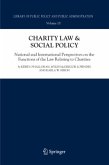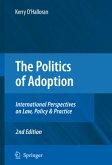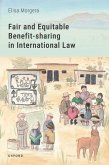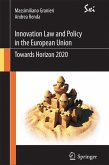This book offers an in-depth study of a benefit-sharing case that has captured great attention: the use of San knowledge to develop anti-obesity products, and places it in the global context of indigenous peoples' rights, consent and benefit-sharing.
Indigenous Peoples, Consent and Benefit Sharing is the first in-depth account of the Hoodia bioprospecting case and use of San traditional knowledge, placing it in the global context of indigenous peoples' rights, consent and benefit-sharing. It is unique as the first interdisciplinary analysis of consent and benefit sharing in which philosophers apply their minds to questions of justice in the Convention on Biological Diversity (CBD), lawyers interrogate the use of intellectual property rights to protect traditional knowledge, environmental scientists analyse implications for national policies, anthropologists grapple with the commodification of knowledge and, uniquely, case experts from Asia, Australia and North America bring their collective expertise and experiences to bear on the San-Hoodia case.
Hinweis: Dieser Artikel kann nur an eine deutsche Lieferadresse ausgeliefert werden.
Indigenous Peoples, Consent and Benefit Sharing is the first in-depth account of the Hoodia bioprospecting case and use of San traditional knowledge, placing it in the global context of indigenous peoples' rights, consent and benefit-sharing. It is unique as the first interdisciplinary analysis of consent and benefit sharing in which philosophers apply their minds to questions of justice in the Convention on Biological Diversity (CBD), lawyers interrogate the use of intellectual property rights to protect traditional knowledge, environmental scientists analyse implications for national policies, anthropologists grapple with the commodification of knowledge and, uniquely, case experts from Asia, Australia and North America bring their collective expertise and experiences to bear on the San-Hoodia case.
Hinweis: Dieser Artikel kann nur an eine deutsche Lieferadresse ausgeliefert werden.
From the reviews:
"This book is an excellent series of papers that document the development of the San-Hoodia benefit-sharing agreement. ... This book ... is essential reading for anyone trying to bring a natural product to market and seeking a benefit-sharing partnership." (Kristine Stewart, Economic Botany, Vol. 65 (2), 2011)
"This book is an excellent series of papers that document the development of the San-Hoodia benefit-sharing agreement. ... This book ... is essential reading for anyone trying to bring a natural product to market and seeking a benefit-sharing partnership." (Kristine Stewart, Economic Botany, Vol. 65 (2), 2011)








